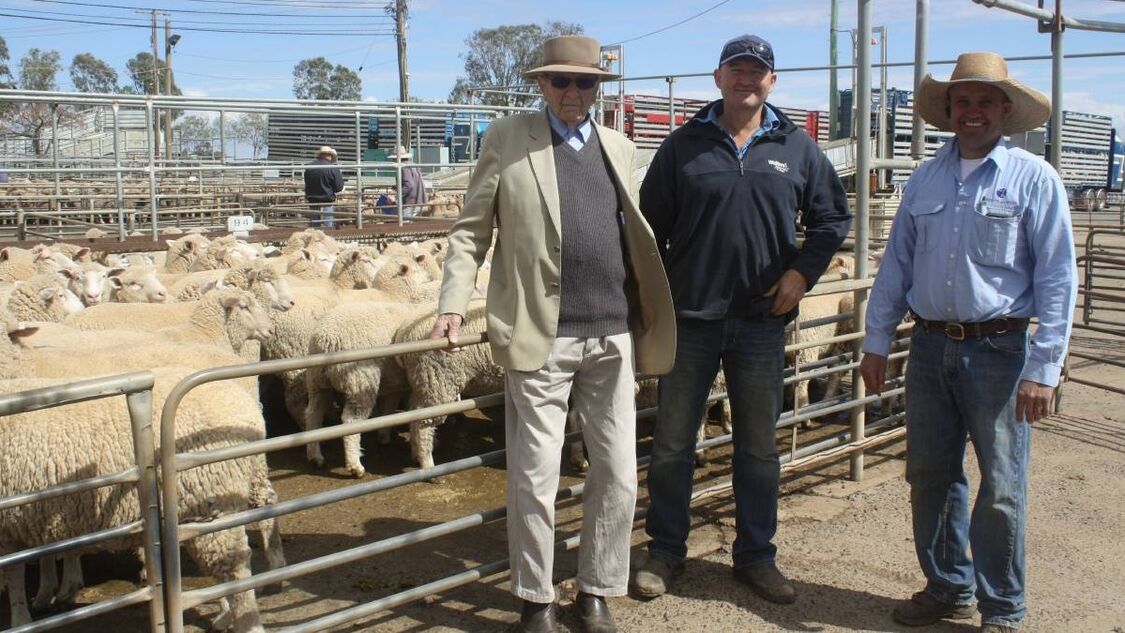BEN Shanks has been feeding his 4000 First-Cross ewes for the best part of three years, but is defying the dry with strong results - on-farm and in the saleyard.
The Dubbo mixed farmer operates 11,000 acres across two properties with father Robert, joining his flock twice a year to Poll Dorset rams.
This enables a percentage of the ewes to lamb three times every two years.
“We join in both spring and autumn, so for those ewes that lamb early in autumn, will we put rams straight back in when we mark them (the lambs), so those ewes that join up also have a lamb later in the spring that year,” Ben said.
“ And if they don’t then they get joined again in the spring for a lamb the next year - it works out as two lambs one year, one the next.
Scanning all their ewes and achieving rates well into the 90s (per cent), Ben said they use fertility aid Regulin during spring joinings for the past four years, mainly with maiden ewes.
This, teamed with good nutrition, has created good results with the six week ram joining.
“We are up into the 90 per cent with our maiden ewe joining and it is giving us more twins,” he said.
“We scanned the ewes that are about to lamb at 97 per cent right across the board and 65 per cent of those were twins.
“We shear twice a year for ease of management and also we found our lambing percentage has been improved when (the ewes) are not lambing with a lot of wool on them.”
Ewes are scanned for multiples and fed separately, with dry ewes sold. Those ewes who don’t present with a lamb at marking time are also turned off.
First-cross ewes are purchased in predominantly from a producer near Quambone, and Ben said they had been been buying them direct from there for the past decade.
“And we’ve only joined to Poll Dorsets for the past 10 to 12 years,” he said.
“We have stuck with the Poll Dorsets just because of the end product, it is always just that bit better.
“And by just having all Poll Dorsets makes it easier, you get a good line when you are selling your lambs and we’ve found the Poll Dorsets do a better job.”
Ben doesn’t focus on the figures when picking out his rams, which he buys from two local studs, Ashbank and Marocara.
“Because we are aiming to produce heavy export lambs, I try to get the rams that are on the heavier end of the sale,” he said.
“I figure if the rams are heavier than what they produce is going to be the same…we always try to buy the top end rams, happy to pay good money for good rams.
“We like to join the ewes at 3 per cent.”
The Shanks turn off their Poll Dorset sired lambs both to the Dubbo Saleyards and direct to processors generally from June to September each year, both new season suckers and shorn lambs from the previous year.
They have been selling 200 lambs into Dubbo each week for the past couple of months, after lotfeeding them to 70kg.
“We always try to finish our lambs wether it is on lucerne in a good year or supplement with grain in a dry year - we’ve pretty much fed most of them for the last couple of years from birth until sold.
“We’ve got autumn born lambs that we weaned three weeks ago and they will be sold in the next couple of weeks - they were weaned straight off of mum onto self feeders.
“We try to get suckers to 50kg, but it depends on the market, because market so good at the moment, we are aiming for $250 for 50kg suckers.
“We do sell lambs direct to Fletchers or to TFI in Tamworth.
“The lambs we’ve been selling the last couple of months TFI has purchased 95 per cent out of Dubbo - which tells us they are happy with how they are hanging up as they keep buying them.”
And they aren’t the only ones, with the Shanks lambs having gained accolades for their lambs for the past two Dubbo Prime Lamb Hoof and Hook Competitions, including the winning pen on the hoof this year.
“It is a good competition as it lets you know you are doing a reasonable job with what you are doing,” Ben said.
The shanks have been using barley, lupins and pellets to feed their stock through the extended drought, and while there is a green tinge on some of their land, they haven’t been able to plant a crop on one of their properties for the past three years.
“We are just trying to keep most of our breeders because when it does rain I just don’t see where you are going to buy back in,” Ben said.
“It has been testing for everyone, but I think you just try to stay a bit positive and keep yourself busy enough it is the best way to try to get through it.”
